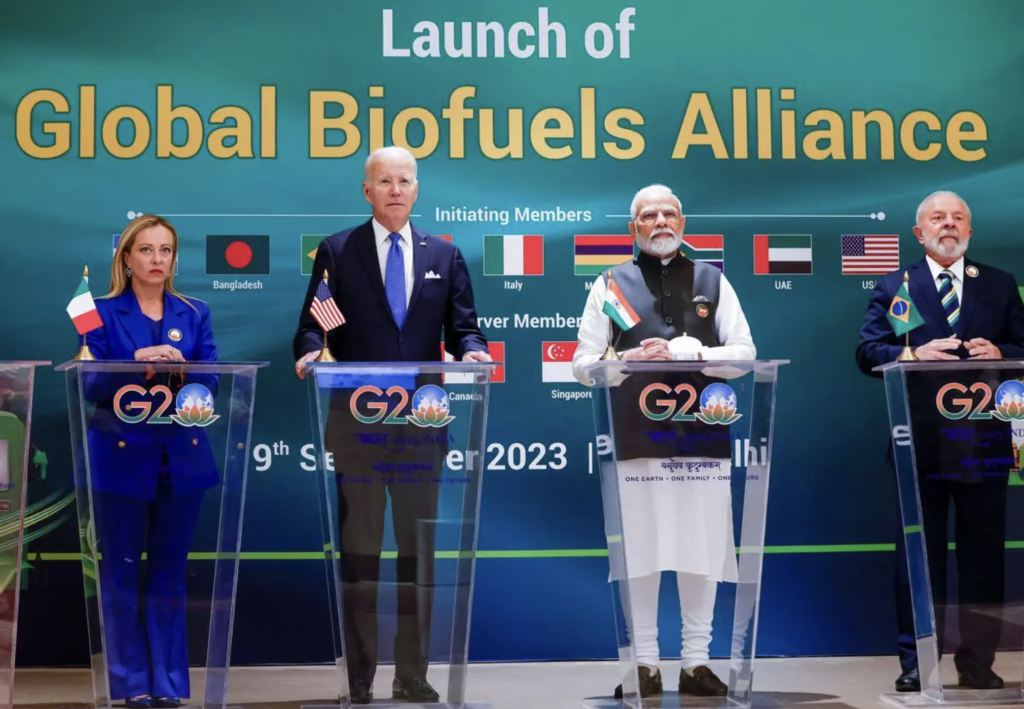Prime Minister Narendra Modi unveiled the Global Biofuel Alliance during the 18th G20 summit held in Delhi over the weekend. The Alliance, as described by the Ministry of External Affairs (MEA) has a primary goal of expediting the global adoption of biofuels. It intends to achieve this by facilitating technological advancements, promoting the sustainable utilization of biofuels, establishing robust standards and certification procedures and involving a wide range of stakeholders in these efforts.

Notably this initiative has garnered the support of 19 countries and 12 international organizations, both within and outside the G20 framework. Key nations like Brazil, India, and the United States, all significant players in the production and consumption of biofuels are the founding members of the Global Biofuel Alliance.
The Indian automotive sector stands to gain substantially from this endeavor. The industry currently faces various challenges including soaring fuel prices and stricter emissions regulations. Biofuels offer a viable solution by reducing the sector’s reliance on fossil fuels and helping it meet stringent emission standards.
An illustrative example of India’s commitment to biofuels is its achievement of 10 percent ethanol blending in June 2022, surpassing its initial target set for November 2022. The government now aims to achieve a 20 percent blending rate by 2025.
Furthermore india is actively promoting green mobility options through technological advancements. This includes the push for electric vehicles, vehicles powered by E20 fuel, and aspirations for hydrogen powered vehicles in the future. Minister of Road Transport and Highways, Nitin Gadkari, recently unveiled a prototype of a hydrogen powered Toyota Innova.
Looking ahead India has set an ambitious target of achieving carbon neutrality by 2070. The Global Biofuel Alliance could play a pivotal role in helping the nation work towards this significant environmental goal.
